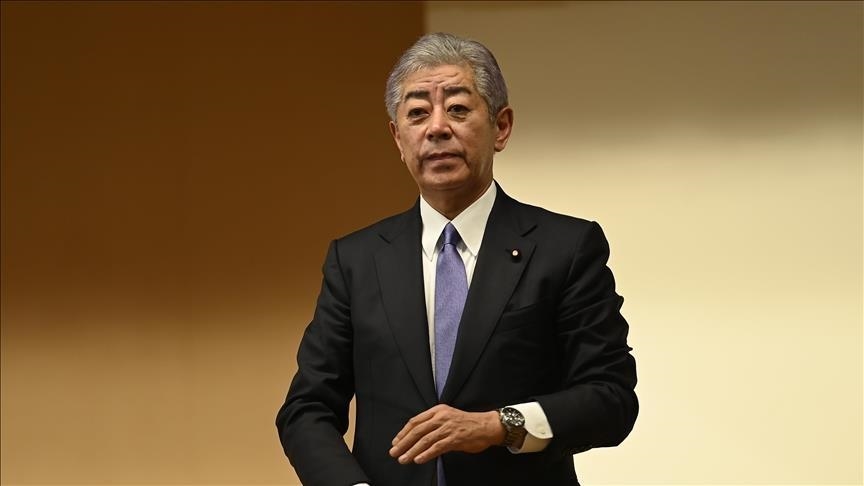As with many of our federal holidays, what we celebrate on Labor Day often times has nothing to do with the reason for the holiday’s existence. Today, as we put away our white clothing and say farewell to summer, I encourage you to take a few minutes to appreciate the origins of Labor Day and also to acknowledge the current role that our nation’s veterans play in the workforce.
By way of background, the origins of the labor movement are as old as the nation itself, and have their founding in the beginnings of the republican ideals of the American Revolution, including “foster[ing] social equality, celebrat[ing] honest labor, and rel[ying] on an independent, virtuous citizenship.”
The earliest recorded strike to protest a wage reduction took place in New York in 1768. Over the next hundred years, trade unions gathered strength in many urban areas in an effort to fight against diluted and cheap labor and promote safer working conditions. By 1894, Labor Day was recognized as an official national holiday “dedicated to the social and economic achievements of American workers.”
Current labor-related issues impacting the Department of Veterans Affairs are two-fold. Although the role of labor unions for VA employees is a topic that has frequented news headlines lately, a second, and more important issue pertaining to veterans is the consequences they suffer when they are excluded from making social and economic achievements as American workers due to service-related disabilities.
As we take today to appreciate the value of the American worker, VA should take the opportunity to get serious about updating its rating schedule for disabilities in order to improve the lives of veterans having difficulty reintegrating into the workforce due to disability.
In addition to modernizing the rating criteria for disabilities, VA must also improve its efforts to rehabilitate veterans back into the workforce through ideas such as quality of life payments, as opposed to payments designed primarily to offset lack of employment, as well as strengthening its vocational rehabilitation programs.
The current system of disability compensation at the VA is designed to compensate veterans for, “as far as can practicably be determined, the average impairment in earning capacity resulting from such diseases and injuries[incurred during service] and their residual conditions in civil occupations.” Although VA does regularly schedule some veterans for examinations to evaluate how a disability may have improved or deteriorated over time, generally speaking, once a veteran receives disability compensation, they receive those payments for life.
Unfortunately, the VA’s rating schedule for disabilities itself also seems to be for life, despite the fact that it is severely outdated and thus often fails to accurately match specific disabilities with the appropriate degree of impairment in earning capacity.
The rating schedule for disabilities has not been overhauled since just after World War II, when the United States’ economy was largely centered around manufacturing and farming, as opposed to the current economy which is dominated by more sedentary and technology-based occupations.
Congressional oversight is an integral and necessary component toward implementing these needed improvements. It is important to remember that the recommendation that VA “reorganize its [disability] regulations in a logical, coherent manner” arose from the October 2001 VA Claims Processing Task Force Report to the Secretary of Veterans Affairs, nearly 17 years ago.
Similarly, in the 2007 Institute of Medicine report, “A 21st Century System for Evaluating Veterans for Disability Benefits,” the IOM recommended that VA “immediately update the current Rating Schedule.”
Despite these recommendations, efforts to update and revise VA’s schedule for rating disabilities over the years, including the release of several drafts in the federal register, have failed to result in the implementation of any meaningful modernization of the VA’s Rating Schedule.
Given the growth in disability roles both at the VA and in other government programs, it is surprising that VA has not been more engaged on this troubling economic development. Indeed, although the veteran population fell by 18 percent from 2000 to 2012, the number of veterans receiving disability compensation rose from 2.3 million to 3.7 million during the same time period.
As was recently noted at a hearing before the House Committee on Veterans’ Affairs by journalist Sebastian Junger in the context of PTSD benefits:
“If you want to create hundreds of thousands of depressed alcoholics in our society, give then
Just enough money so they never have to work again and tell them that they are too disabled to contribute to society in any way. In the civilian population — which does not have access to lifelong PTSD disability — trauma reaction is considered both treatable and temporary. . . . We are not doing veterans a favor by warehousing them in a lifelong entitlement program.”
Junger’s point, although unpopular in some advocacy circles, is a valid one – many disabilities are treatable and temporary, and improved health outcomes are associated with employment and community integration as opposed to relying on disability payments alone.
Indeed, as recently noted by Kenneth Hergenrather, a member of the National Working Positive Coalition and professor at George Washington University, longitudinal research into the relationship between employment status and health reveal that both mental and physical health deteriorate in the face of unemployment and, by contrast, employment correlated directly with better mental health; less distress, anxiety and depression; better quality of life; and better physical health, as measured by pain fatigue, and difficulty completing activities of daily living.
Although ensuring veterans have access to benefits they’ve earned through their service is undoubtedly important, society’s role must not stop there.
Stereotyping all veterans as charity cases in need of government entitlements and benevolent handouts from non-profits does not benefit veterans themselves nor does it improve health outcomes and, in turn the economy, by giving disabled veterans the opportunity to rejoin the workforce.
As noted by the poet Maya Angelou, “nothing will work unless you do.” We must do better at helping veterans rehabilitate and return to the workforce, rather than leaving them dependent on an entitlement system proven detrimental to their overall health and well-being.










